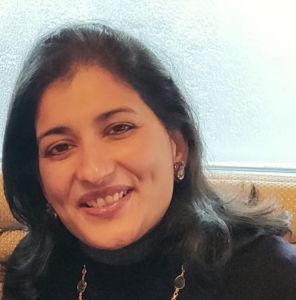
Head of EAP, Advisor Teaching & Learning, West Island School, English Schools Foundation
Shubha Koshy has been teaching at international schools in Hong Kong and the Asia Pacific region for 30 years. She is a functional linguist, an IB Educator and has an M.Ed from the University of Nottingham alongside a Diploma in Frontline Management at International Schools. Shubha is Head of EAP at West Island School, Hong Kong. She advises on language policy and pathways for access and inclusion.
She has previously been a workshop leader for the IBO on Language Policy and is currently chair of ESF’s EAP Curriculum Group. Shubha is concerned with learner identity and wellbeing in the context of academic language development. She was a lead contributor on IBO’s stance paper on Language and Learning in IB Programmes, IBO’s Access & Inclusion policies. Shubha is a member of the international SEE Learning Committee led by Emory University, investigating the role of social-emotional, ethical learning in the academic language development of bilingual and multilingual students. Shubha is a Cambridge IGCSE ESL author for Harper Collins, London. She has presented at the Tokyo IAFOR conference on international mindedness and AISC 2022 on teen well being. Shubha has been a keynote speaker for the Fulbright, Language Learning Conferences of 2023 & 2024.
Language is at the core of human identity. We inhabit our languages in neurological, biological, ecological, cognitive, psycho-social and socio-cultural spaces. Language is therefore one of our main ways of knowing and being. Our languages define who we are, internally and externally. When students navigate multiple languages in their teenage years, they are working through multiple ways of knowing, learning and expressing themselves.This occurs in high stakes, pre and post-16 programmes, alongside the pressures of academic performance.
An IB world school is a complex ecosystem for diverse, multilingual students. Schools become powerful learning environments when they are able to support learners with balancing their multilingual identities, to survive and thrive. The explicit teaching of academic language proficiency and translanguaging, supports students’ understanding of themselves and others. How might the language of emotional regulation strengthen resilience and engagement? How might we tempt students to engage positively with a world of climate crises and conflict? How might we preserve joy and hope? This presentation argues that students need social-emotional resilience, ethical frameworks and linguistic support for wellbeing and an affirmed identity. A multilingual identity that skilfully negotiates their place and purpose in a VUCA world: of volatility, uncertainty, complexity and ambiguity.
